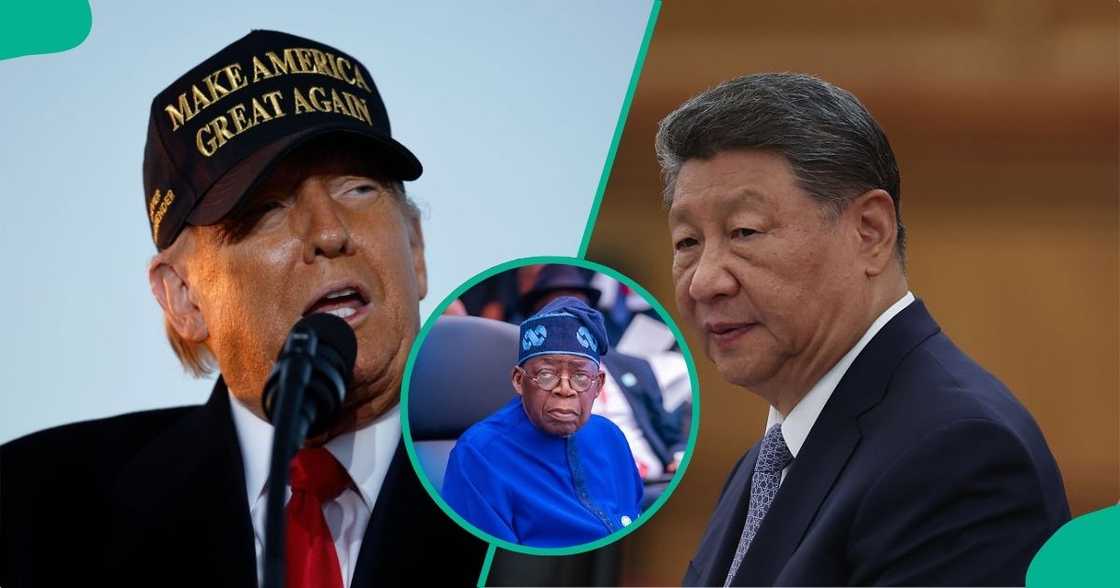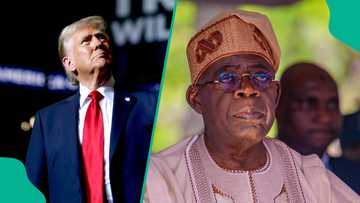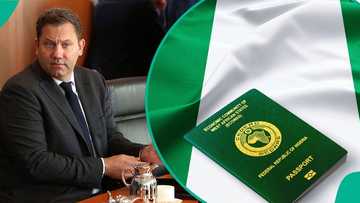China Defends Nigeria: 4 Reasons Beijing Attacks Trump over Plans to Strike Africa’s Biggest Economy
- China is pushing back against plans by the United States to strike Nigeria over alleged killings in the North
- The Asian giant called President Donald Trump’s threat an attempt to destabilise the country
- However, experts have alleged that China’s interest in Nigeria goes beyond diplomacy to personal interests
Pascal Oparada is a journalist with Legit.ng, covering technology, energy, stocks, investment, and the economy for over a decade.
China has issued a strong rebuke to US President Donald Trump following his recent threat to suspend aid and launch possible military strikes against Nigeria over alleged persecution of Christians.
At a press briefing in Beijing, Chinese Foreign Ministry spokesperson Mao Ning reaffirmed Beijing’s support for Nigeria’s sovereignty, warning against what she described as “foreign interference under the guise of human rights or religion.”

Source: Getty Images
Economic interests drive China’s response
Trump’s comments, which accused the Nigerian government of failing to protect Christians, have drawn widespread international reactions.
Nigerian president Bola Tinubu dismissed the allegations, insisting that his administration remains committed to protecting religious freedom and national unity.
Analysts say Beijing’s quick response goes beyond diplomatic formality—it reflects deep economic, strategic, and political stakes that China has built in Nigeria over the past two decades.
Nigeria is one of China’s most significant economic partners in Africa. Beyond political solidarity, Beijing’s defence of Abuja stems from major investments under the Belt and Road Initiative (BRI), which includes infrastructure, energy, and mining projects.
According to a Brookings Institution report, Nigeria ranks among the top African destinations for Chinese foreign direct investment, particularly in oil, gas, and solid minerals such as lithium and gold.
Since September 2023, Chinese companies have reportedly invested over US$1.3 billion in Nigeria’s lithium processing sector.
These investments support Nigeria’s push to diversify from crude oil and develop industries around green energy minerals like lithium, rare earths, and lead-zinc, with Chinese capital and technology transfer as key enablers.

Read also
Trump’s threat tests ties as U.S. slips to sixth among Nigeria’s top trade partners in 2025
Strategic partnership and debt diplomacy
China’s relationship with Nigeria is not just commercial—it’s strategic. Beijing classifies Nigeria as a “comprehensive strategic partner”, signaling long-term commitment to joint development and resource security.
China is also Nigeria’s largest bilateral creditor, with the Debt Management Office (DMO) putting the country’s debt to China at nearly $5 billion as of mid-2025. These financial ties give China a vested interest in ensuring Nigeria’s political and economic stability.
“Beijing’s defence of Nigeria is not just about friendship—it’s about safeguarding its multi-billion-dollar investments,” said Osas Igho, a financial analyst, in a call with Legit.ng.
“A US strike could destabilize the region and disrupt Chinese infrastructure and mining projects.”
Protecting Africa’s resource frontline
Nigeria sits at the heart of China’s African resource diplomacy. Its mineral reserves, oil exports, and expanding industrial base make it a crucial node in Beijing’s long-term energy and manufacturing security plans.
By defending Nigeria, China is also protecting its broader African economic network.

Read also
Lady predicts likely outcome of China's move to wade into tension between Nigeria and Donald Trump

Source: Twitter
Any destabilization in Nigeria would ripple across West Africa, threatening Chinese supply chains and infrastructure initiatives in countries like Ghana, Niger, and Cameroon.
The geopolitical tug-of-war
China’s reaction underscores the growing geopolitical rivalry between Beijing and Washington over Africa’s future.
While the US often emphasizes democracy and human rights, China frames its engagement around infrastructure and non-interference.
By rejecting Trump’s threat, China positions itself as a “reliable development partner” for African nations wary of Western intervention.
As tensions rise, Nigeria has become a symbol of this broader global power struggle, caught between America’s ideological assertiveness and China’s pragmatic investment diplomacy.
U.S. slips to sixth among Nigeria’s top trade partners in 2025
Legit.ng earlier reported that Nigeria’s trade relations with the United States drew renewed attention following President Donald Trump’s recent threat to suspend aid to Nigeria over alleged persecution of Christians.
The warning rattled both diplomatic and economic circles, raising concerns about potential ripple effects on investment and trade flows.

Read also
US senator mentions president in west Africa that has enabled Boko Haram to thrive and cause crisis
Despite this tension, new figures from the National Bureau of Statistics (NBS) indicated that the U.S. remained a key, though gradually declining, player in Nigeria’s export landscape.
Proofreading by Kola Muhammed, copy editor at Legit.ng.
Source: Legit.ng



